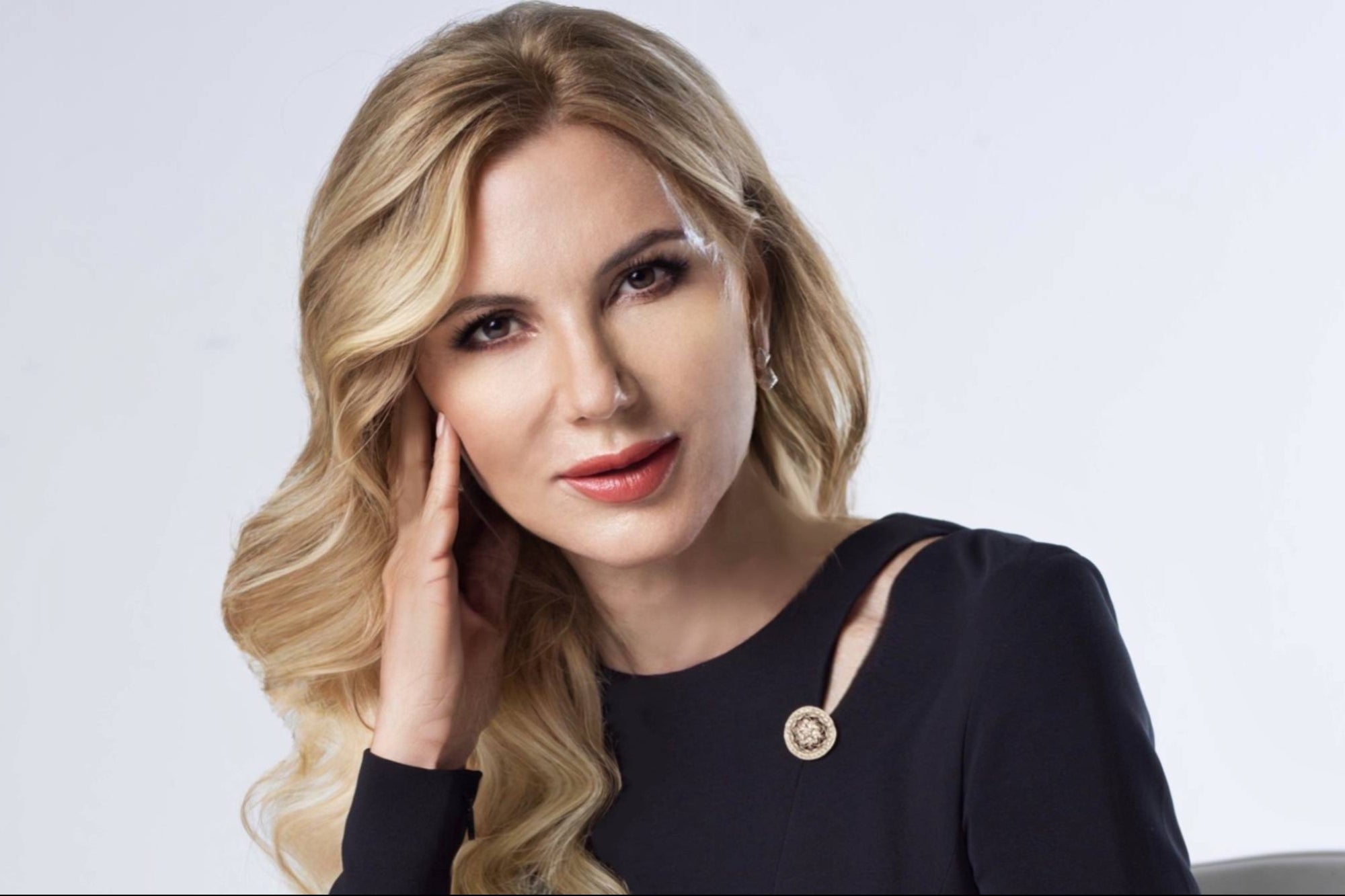10 Things SMEs Should Know About Entrepreneurship A recap of the lessons learnt at Entrepreneur Middle East's 2014 Enterprise Agility Forum, which had the region's most prominent business leaders come together to talk about SMEs in the GCC.
Opinions expressed by Entrepreneur contributors are their own.
You're reading Entrepreneur Middle East, an international franchise of Entrepreneur Media.

I had the great fortune of representing Melltoo at Entrepreneur Middle East's Enterprise Agility Forum in 2014, where some of Dubai's most prominent business leaders came together to talk about SMEs in the GCC. It was fascinating to hear these leaders talk about their experiences and views on the challenges and benefits of SMEs in the region's financial ecosystem. After listening to the panelists speak, I came up with the following summary of ten things that I think all SMEs should know about entrepreneurship.
1. Failing does not make you a failure
The topic of failure came up repeatedly throughout this event. According to the panelists, success is very rare and usually preceded by many failures. However, it's important for entrepreneurs to understand why they have failed, in order to be able to modify their business plan and head in a new direction. Having said that, while there is no shame in failing, there are some very serious ramifications for UAE-based entrepreneurs who are unable to repay loans taken out from Emirati banks. Consequently, Imad Ghandour, co-founder and Managing Director of CedarBridge and cofounder of the MENA Private Equity Association, advised all SMEs in the UAE to include a budget for unforeseen financial emergencies to avoid such legal penalties. SMEs shouldn't think of their failures as the end of their entrepreneurial journey, they should think of them as teachable moments that propel your business in a better direction.
2. You're never too small to fail
Some people feel that big corporations think that they're "too big to fail," but is it possible that SMEs have adopted the same attitude? While it is true that the UAE's business ecosystem isn't completely ready to accommodate the legal and financial needs of the growing number of SMEs in the country, that doesn't necessarily mean that they should always receive special treatment. At the end of the day, a business is a business, no matter how big or small. If entrepreneurs are unwilling or unable to deal with the obstacles that come with entrepreneurship, they might want to consider a career change.

3. Not all ideas are good business ideas
Not all good business ideas are complicated, and not all complicated business ideas are good. Yogesh Mehta, the Managing Director of Petrochem Middle East, put it best when he said that an entrepreneur is someone who adds value to a community with a service or social good. If the business you plan to launch doesn't bring a new idea, or a fresh perspective on an existing one, then it is unlikely to succeed. Understanding the needs of your community and local businesses is a key part of being a successful entrepreneur. If there is no need for your product/service, real or artificial, then it's probably not the best business idea to pursue.
4. Learn about success from successful people
According to Vikram Shroff, Director of Regal Group and President of the UAE Chapter of the Entrepreneurs' Organization, the best way to learn about business success is to associate yourself with successful people. While many SMEs devote a large part of their time networking for investment purposes, more entrepreneurs need to pursue the real wealth that the world's business giants have to offer and that is experience. Not every businessperson is willing to invest in an SME, but there are many who are willing to offer advice or contacts that may be just as important as a capital injection. Although there is no dollar value for mentorship, it is priceless for SMEs, because they can learn valuable lessons from the successes of the corporate world, all the while circumventing their costly failures.

5. Build your credibility through actions not words
Building credibility can be very difficult for SMEs, especially in the UAE, since they don't have the same access to resources that more established companies do. Ironically, many of the resources that entrepreneurs need to grow to establish their credibility, such as loans from banks, capital injections etc., are not easily available because they don't have credibility. How can entrepreneurs in the UAE break this cycle? According to Ambareen Musa, CEO of Souqalmal, a big part of building credibility in the business world relies on the way that entrepreneurs have used previous rounds of funding from investors. If an SME has a history of poor cash flow management, VCs and banks will be hesitant to invest in them. For many entrepreneurs, establishing their credibility becomes an exercise in creativity, as they are unable to take advantage of the same resources that bigger companies do. However, as long as SMEs demonstrate responsible cash flow management, entrepreneurial tenacity and continuous growth, their credibility can be established quite organically.
6. Plan and manage your cash flow carefully
One of the biggest problems that entrepreneurs face according to Alexandar Williams, Director of Strategy and Policy at Dubai SME, are cash flow issues. Overzealous spending and bloated business costs are common causes for failure among entrepreneurs, however these issues are usually symptoms of a bigger problem: poor planning. Planning is an integral part of being successful in the business world, regardless of whether you are the CEO of a multi-billion dollar company or a little enterprise. Understanding the costs of launching, maintaining and expanding a company is essential, especially when SMEs are in the process of estimating how much funding they will need, because it allows them to pinpoint how many investors they need to secure in order to move forward with their business plan.

7. Understand your business culture
Another issue that is often neglected when it comes to getting funding from investors is the need to understand the culture of investment where a business is based. Every country has a different business culture, value and pace. For example, if an entrepreneur is a part of the "Insh'Allah" business culture, then they want to make sure that they manage their cash flow in such a way that allows them to accommodate the potential capital delays that come with the "Insh'Allah" business mentality. By understanding the cultural context of investors, SMEs can ultimately plan their cash flow more effectively, thus creating a financial buffer for any issues that may arise while they are waiting for their next capital injection. Being in tune with local business culture can also help SMEs network and establish credibility more quickly, which will ultimately allow entrepreneurs more access to resources that will help them grow in their local market.
8. Entrepreneurship is more than a theory
Ziad Makhzoumi, Group CEO of Fakih IVF, put it best when he said that "entrepreneurship is a spirit, an attitude, not a theory." When it comes to business, nothing can beat the real experience, even an Ivy League education. While it is important for entrepreneurs to understand the theories and mechanics of business, these theories can never replace the invaluable experience that an entrepreneur gains "working on the ground." In a world where technology is pervasive in every aspect of life, it's important for entrepreneurs to understand how quickly the internet and globalization are causing the theories they have learned to be obsolete. The rules of the "game" are changing daily, and the successful entrepreneurs are not the most pedantic, they're the ones who are willing to throw out the rule book and go against their theoretical knowledge when a new or a better way of doing something comes about.

9. Sacrifice is the name of the game
If you're unwilling to pour all your heart and resources into your business, then perhaps entrepreneurship is not for you. During the forum, H.H. Sheikh Maktoum Hasher Al Maktoum, former Executive Chairman of SHUAA Capital, discussed entrepreneurs considering business vs. money. When an entrepreneur's efforts are based on growth rather than profit margins, it becomes much easier for them to make material sacrifices to achieve the success that they strive for. After all, what's the point of driving a Mercedes if your business is in the red? Being an entrepreneur doesn't mean that a person has to give up all of their creature comforts. However, if pursuing a lavish lifestyle becomes more important to an entrepreneur than investing in their business, they are unlikely to become successful.
10. Investing in quality human capital is essential
The UAE's business ecosystem is a very interesting place because it attracts the best and the brightest professionals of every field from all around the world. That being said, the price tag for these professionals isn't always cheap, but should that stop SMEs from hiring the best? Not necessarily. SMEs need to look at quality employees as a long-term investment, because their individual experience will add immeasurable value to a company's day to day operations. While many entrepreneurs complain about their inability to offer attractive salaries to experienced professionals, they are forgetting one crucial point. High salaries aren't the only way to attract talented professionals. Entrepreneurs can also use various incentives including commissions, end of year bonuses, equity, and so on to attract and retain talent.
The 2015 edition of Entrepreneur Middle East's Enterprise Agility Forum will be held on November 16, 2015 in Dubai. For more details about the event, please click here.












